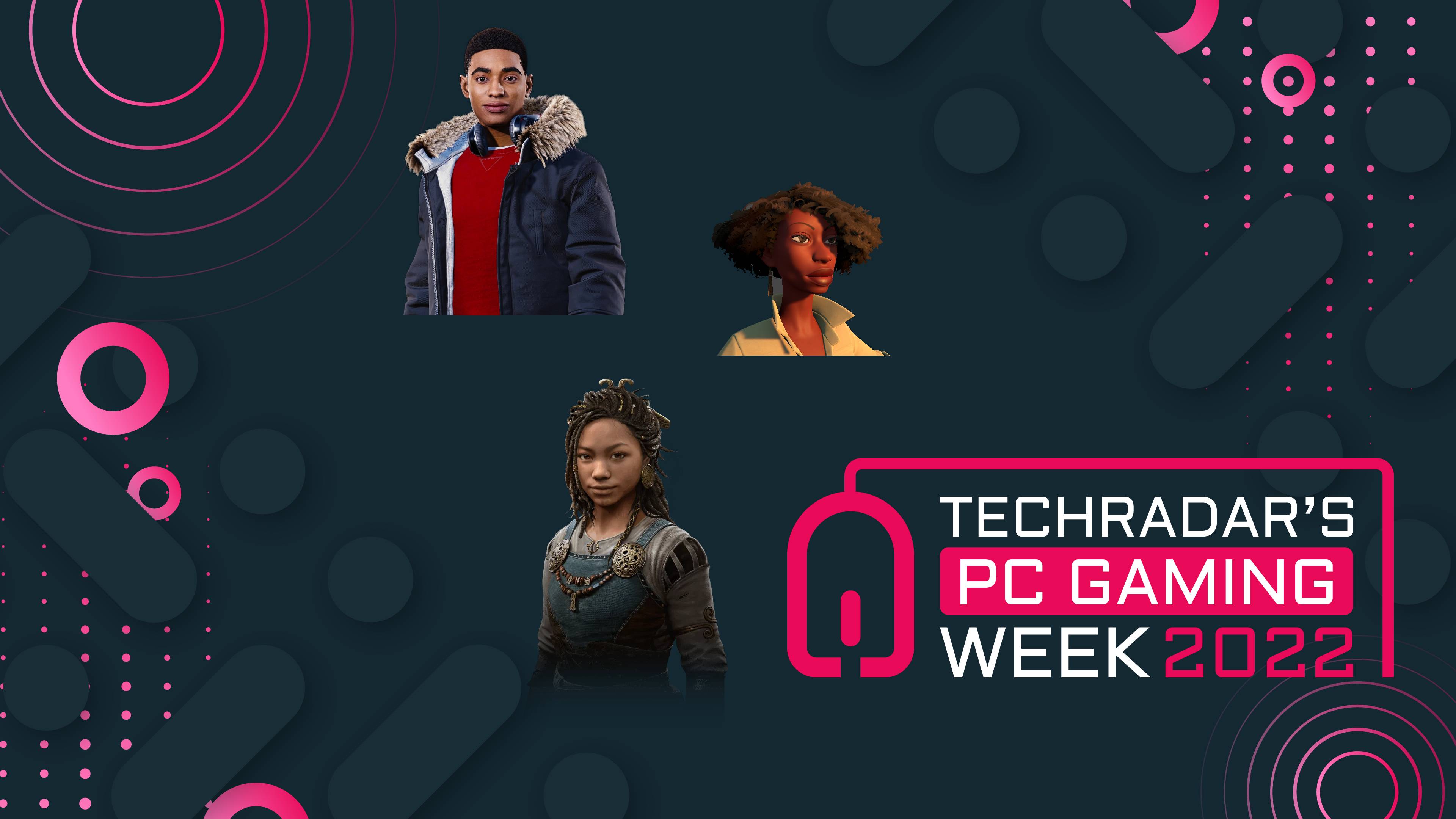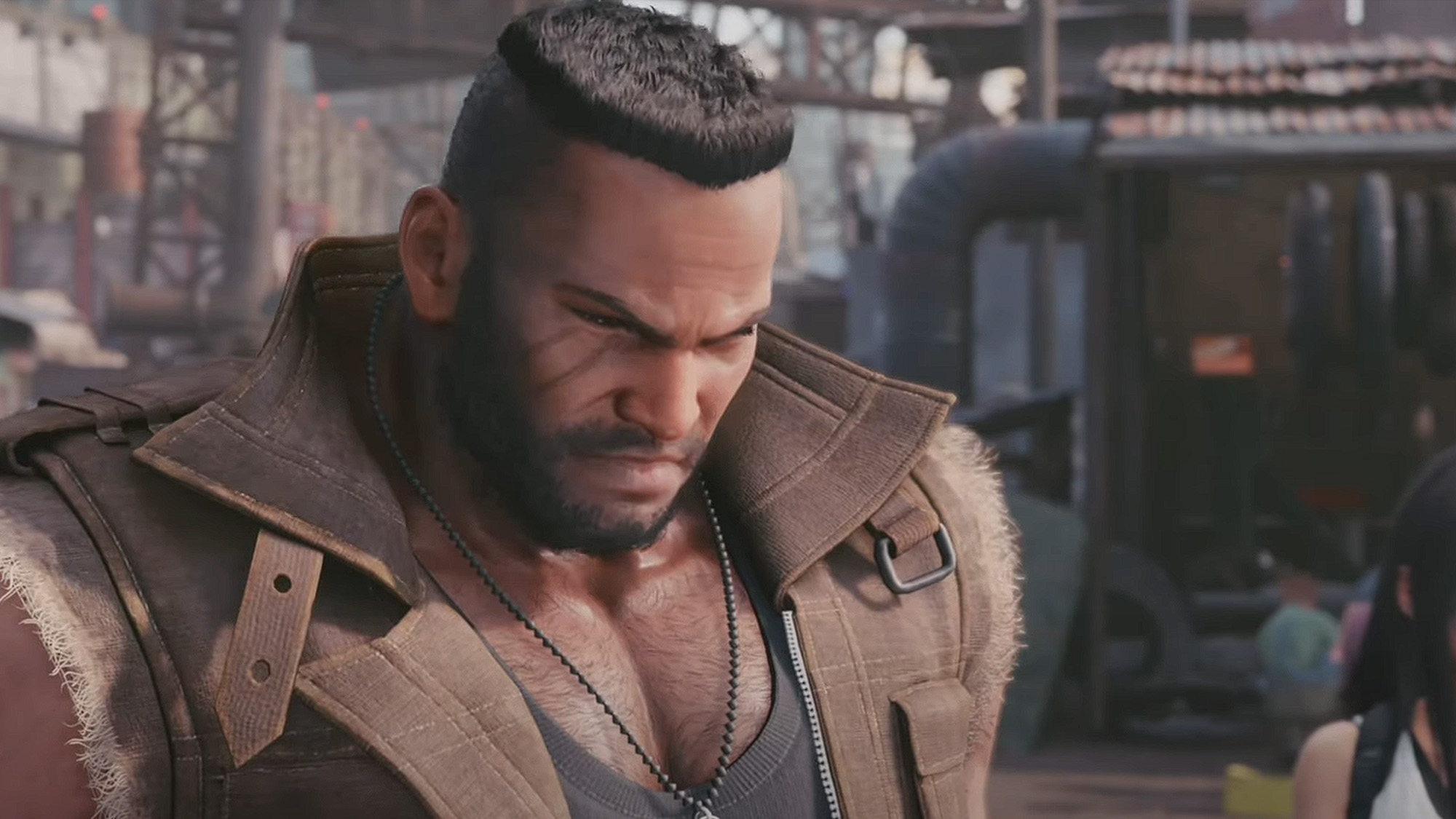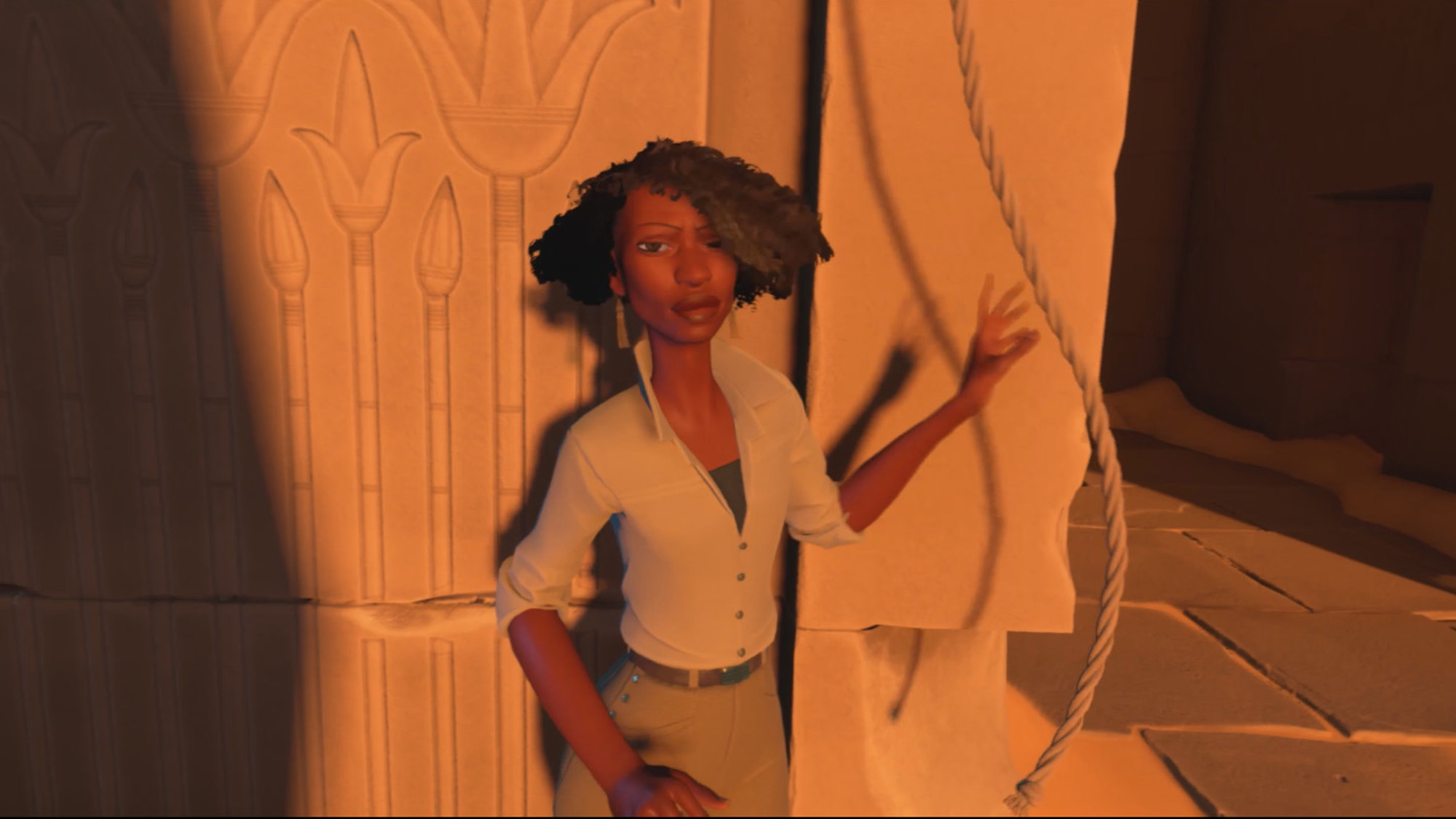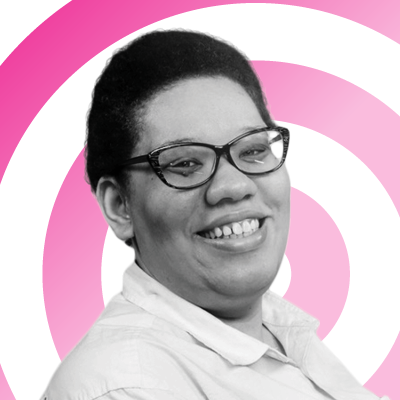Black hair and black bodies in gaming
Black hair has been terribly treated in video games

Black hair is beautiful. Yet for far too long has been left to the wayside and treated as inferior, even in this day and age, and naturally, the video game industry is no exception.
During the Rendering Black Hair panel at Game Devs of Color Expo 2022, both the panelists and the audience shared stories of ignorance and discrimination they’ve experienced at the hands of non-black, especially white, developers.
One of the panelists spoke about getting pushback from anime and games industry people when they wanted to draw dark-skinned characters with kinky hair. There was an art director who, when told there was a difference between two protective hairstyles, asked “why does it even matter?” This sort of racism is an extremely common experience among the few black developers in the industry.
Studios with black developers are rare thanks to bias in hiring practices, a product of only hiring white people for game dev roles and then claiming that it’s difficult to find black devs, despite the latter group being involved in gaming for decades.
This is mainly caused by a lack of black people involved in hiring in the first place. And many non-black artists will use black celebrities, or even white ones, with “watered-down features” that appeal to white beauty standards rather than authentically represent our features and hair.
There are four types of hair in general: Type 1 hair is straight, Type 2 is wavy, Type 3 is loose to medium curly, and Type 4 hair is kinky or tightly wound curls. Black hair, while being diverse in color and texture, tends to fall under Type 4.
Within Type 4 are three categories: a, b, or c. Type 4c is the tightest curls and the worst represented of all hair types. For the purposes of this feature, any references to black hair are referencing 4c hair, as it’s the most discriminated against of all black hair.
Sign up for breaking news, reviews, opinion, top tech deals, and more.
A brief history of black hair
Unfortunately, black hair has been a hot political topic since the days of chattel slavery. The natural hair that grows out of our heads has been subject to violent suppression in the name of colonization, which has affected how we see and modify our natural hair to conform to white beauty standards.
Black hair is significant to our various cultures in the diaspora, with the wide variety of styles used to protect our hair in harsh weather, representing our commitment to spirituality, religion, and individual expression, and during slavery even used to create maps to escape plantations.
And having our hair viewed and forcibly regulated as dirty, unkempt, and undesirable over hundreds of years has had long-term effects internally as well as through society. This has led to the stigmatization of black hair within the entertainment industry, which results in outright mockery, ignorance, violence, or all of the above. And naturally, video games are no exception.
Missteps of black hair and rep in gaming

Because of this massive knowledge gap concerning black hair among non-black people – combined with the fact that most developers are not black – means that you’ll barely see black characters in video games compared to white ones. And this also means that the precious few main black characters rarely sport black textured hair.
There are far too many examples of poorly done black hairstyles and even more games with no black hair options (barring the “comical” giant afro or terrible braids) over the many decades of video game history. And even looking at recent popular titles like Elder Scrolls series, Destiny, the WWE 2K series, and Monster Hunter World, this is still a prolific issue.
One example was the black hair options in Outriders, which included dreads and cornrows. And from these screenshots, we can see how absolutely horrendous they look. Instead of replicating the tight coils present in black hair texture, the devs took the texture of straight hair and attempted to apply it to these hairstyles with disastrous results.
Then there’s the critically acclaimed Elden Ring which, for an otherwise robust character creation, has truly awful black customization options with zero black hair options. And, as of its December 2022 update, the title still hasn’t uploaded a single 4c hairstyle. Another is the now-infamous reveal that a Sims 4 concept artist used cauliflower as a reference for an afro hairstyle.
Triumphs of black hair and rep in gaming

The resulting Sims 4 controversy resulted in one of the most impactful movements in the videogame modding community, which was helmed by content creator and co-founder of Black Twitch UK Danielle 'Ebonix' Udogaranya.
And thanks to her groundbreaking mods, it not only inspired legions of other black players in the community to create their own mods, it even moved the developers and publisher to action. They eventually released official updates to skin tone, hair, and other features while commemorating the efforts of Udogaranya.
But there are other examples of games that have treated black hair with the respect and care it deserves. The titular Miles Morales in Marvel's Spider-Man: Miles Morales is a great example of what happens when a studio invests in black hair. His fade is exceptionally done, sporting a proper hairline and hair texture that perfectly complements his properly rendered black features.
Then there’s Demon's Souls, which showcases a solid array of well-crafted black hairstyles in the character creation, including a dreads top and faded sides combo that actually looks authentic. Not to mention NBA 2K, a game that releases every year with nearly flawlessly rendered black hair. And God of War Ragnarök was praised for how beautifully done Angrboda’s locs were, with each one uniquely rendered and given personality.
The upcoming PC title In the Valley of Gods, from the makers of the highly-acclaimed Firewatch, features a black woman protagonist with her natural textured hair looking equal parts gorgeous and accurate.
Finally, there’s the incredible Open Source Afro Hair Library, which is set to launch on Juneteenth 2023. It’s set to being the first free database of 3D-modeled black hairstyles for the gaming industry, a desperately needed resource. This massive and thorough resource is sure to be a changing force in the gaming industry, allowing developers to have access to assets that will make modeling and designing black hair much easier and more accessible to anyone.
What can be done to improve representation of black hair?
The most immediate path to change is involving black people in all facets of the gaming industry. We need black people in hiring positions to secure black developers and this includes writers, coders, artists, directors, producers, and more.
And when black devs are hired, their expertise and voices must be amplified and invested in, in order to properly represent how black characters are integrated into roles and how they’re represented.
More black critics and journalists are also necessary, as we need those with the depth of knowledge to continue to call out racism within the industry itself and the poor or non-existent portrayal of black characters that result from said racism.
We are in a time where change, mainly pushed forward by black devs and the black community who have been historically self-taught, is slowly happening. Because of the tireless actions of those most affected by the long-standing discrimination against black bodies, we are finally seeing the tides slowly shifting. But as we’ve seen from games that released in even the past few years, there is so much more work to be done.

Named by the CTA as a CES 2023 Media Trailblazer, Allisa is a Computing Staff Writer who covers breaking news and rumors in the computing industry, as well as reviews, hands-on previews, featured articles, and the latest deals and trends. In her spare time you can find her chatting it up on her two podcasts, Megaten Marathon and Combo Chain, as well as playing any JRPGs she can get her hands on.